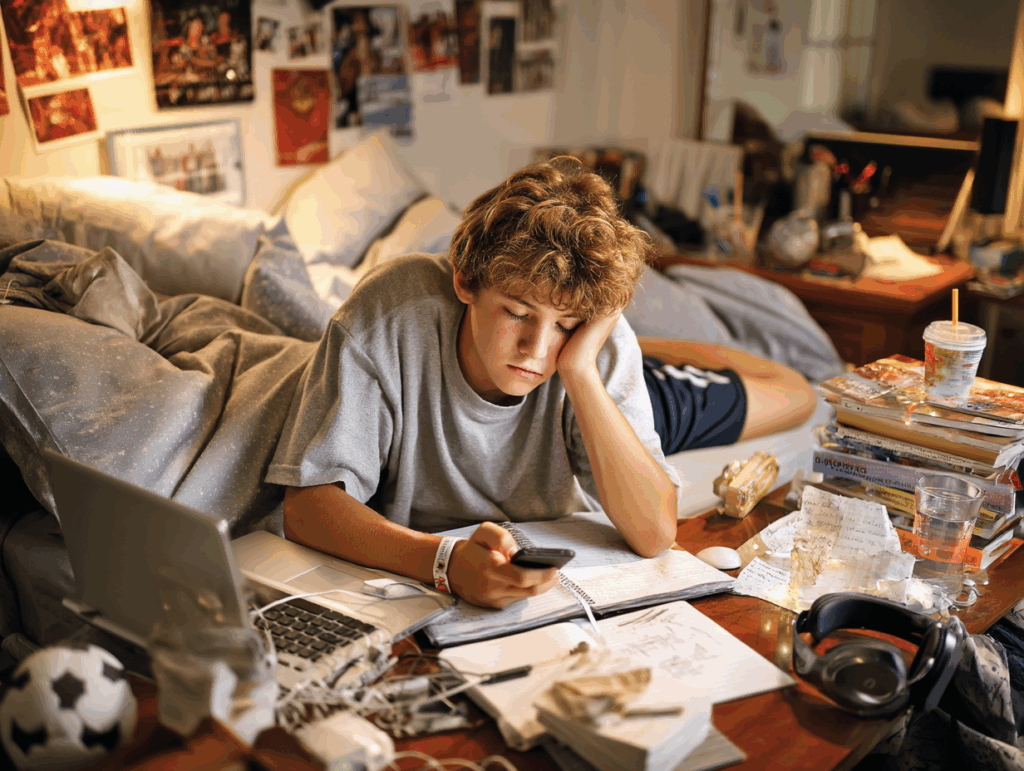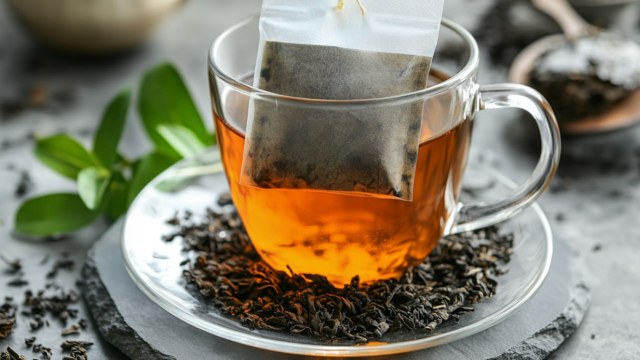【WPMの測定手順】
1. 読む前に設問を確認する
2. 時計(ストップウォッチ)を見ながら、英文を最初から最後まで読み、かかった秒数を記録する
3. 設問に解答する
4. 答え合わせをして正解数を確認する
以下の計算式でWPMを算出する
WPM = 語数 ÷ 読むのにかかった秒数 × 60 × 正解数 ÷ 設問数
※読んだ内容の理解を測定せずただ英文を読むスピードをチェックしたい場合は、WPM = 語数 ÷ 読むのにかかった秒数 × 60 まででOK。
Early Bedtimes Help Teen Brains Shine
Many teenagers stay up late, scrolling on their phones or finishing homework. A new study of more than three thousand American adolescents now shows that this habit could be harming their thinking skills.
Researchers from the University of Cambridge and Fudan University asked students aged 13 to 18 to wear activity trackers, complete brain scans, and take cognitive tests. The devices measured when each teenager fell asleep, how long they slept, and how fast their hearts beat during the night.
The scientists found three clear sleep patterns. One large group went to bed the latest and got the least rest, sleeping about seven hours and ten minutes. A second, smaller group slept only eleven minutes more. The third group turned off the lights a little earlier, slept seven hours and twenty-five minutes, and had the calmest night-time heart rates.
Tiny as these differences seem, they mattered. On reading, vocabulary, and problem-solving tasks, the early-to-bed group scored highest, the middle group came second, and the short-sleep group performed worst. Brain scans showed that the best sleepers had larger brain volumes and stronger connections between key areas for memory and attention.
Lead author Professor Barbara Sahakian believes that repeated small losses of sleep add up over months and years. She suggests regular exercise, keeping phones out of the bedroom, and dimming screens well before bedtime. Going to bed twenty minutes earlier could make a real difference. Other experts agree and call for sleep education at secondary schools to fight “social jet lag.” (250words)
☆Answer the questions☆
(1) What did the activity trackers mainly record?
a) Diet habits b) Sleep patterns c) Social media use d) Homework time
(2) Which group performed best on the cognitive tests?
a) The shortest-sleep group b) The longest-sleep group c) The middle group d) All scored the same
(3) How long did the earliest-to-bed group sleep on average?
a) Six hours b) Seven hours ten minutes c) Seven hours twenty-five minutes d) Eight hours
(4) Which tip for better sleep is mentioned in the article?
a) Drinking coffee b) Regular exercise c) Late-night gaming d) Doing harder homework

【Answer】







